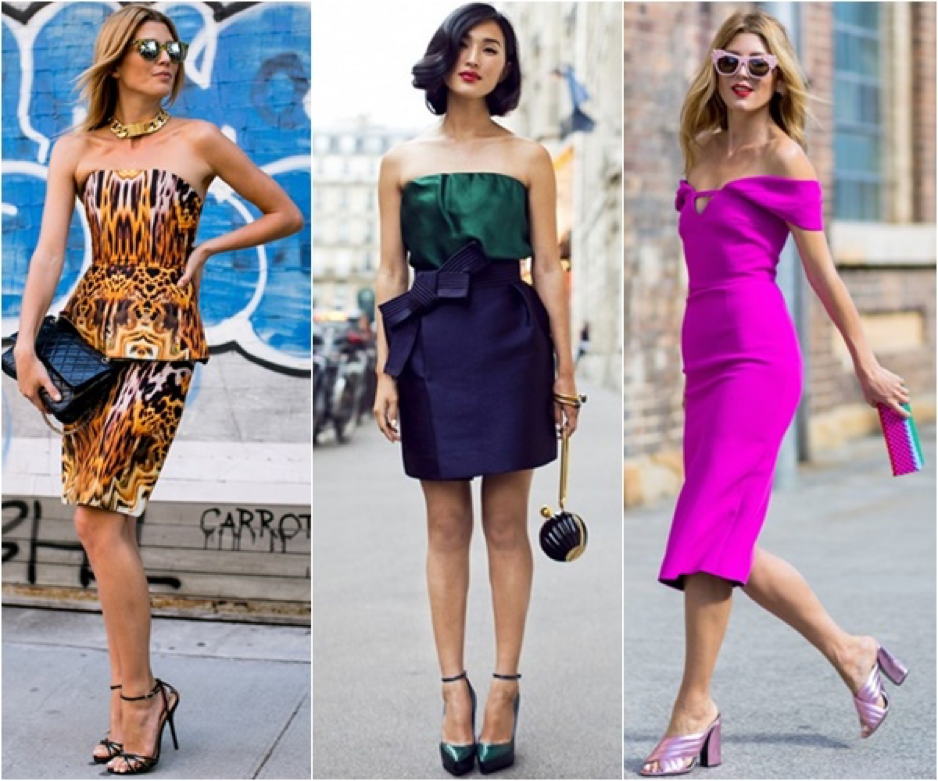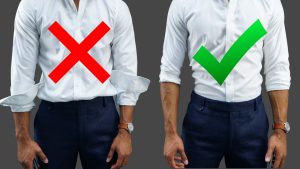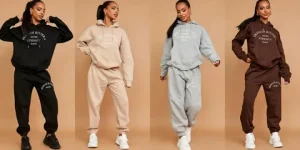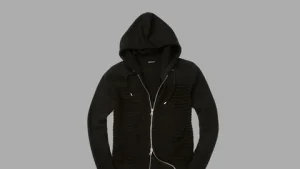Fashion
Dress to Impress Master Your Dressing Sense for Any Occasion

Dressing sense is an essential aspect of personal presentation that reflects your personality, taste, and sometimes even your professional standing. It is the ability to choose the right outfit for any occasion, ensuring that you not only look good but also feel confident and comfortable.
Importance of Dressing Well
Dressing well goes beyond mere appearance. It can significantly impact first impressions, influence the way others perceive you, and even affect your own self-confidence. In professional settings, appropriate attire can enhance credibility and professionalism. Socially, dressing well can improve social interactions and make events more enjoyable.
Understanding Dressing Sense
Dressing sense involves understanding the basics of fashion, such as color coordination, fabric choice, and style. It also includes an awareness of current trends and how to adapt them to suit your personal style and the specific occasion.
Historical Evolution of Dressing Sense
Historically, dressing sense has evolved significantly, influenced by cultural shifts, technological advancements, and changes in social norms. From the elaborate attire of the Renaissance to the minimalist trends of the modern era, the way people dress has always reflected broader societal changes.

Image by yandex.com
Psychological Impact of Dressing
The way you dress can affect your mood and confidence. Studies have shown that dressing in a way that makes you feel good can enhance your mood and self-esteem. Conversely, dressing inappropriately or uncomfortably can lead to feelings of self-consciousness and discomfort.
Types of Dressing for Various Occasions
Casual Dressing
Definition and Key Elements
Casual dressing is relaxed and comfortable, suitable for informal settings such as outings with friends or weekend activities. It typically includes jeans, t-shirts, and casual footwear.
Examples of Casual Outfits
- Jeans and a T-shirt: A classic combination that never goes out of style.
- Casual Dresses: Simple and comfortable dresses paired with sneakers or sandals.
- Athleisure: Combining athletic wear with casual fashion for a trendy yet comfortable look.
Business Casual
Business casual is a blend of formal and casual wear, suitable for office environments that do not require full business attire. It usually includes slacks, blouses, polo shirts, and dress shoes.
Examples of Business Casual Outfits
- Blazer and Chinos: A smart combination that balances professionalism with comfort.
- Dress Shirt and Khakis: An appropriate choice for most office settings.
- Blouse and Skirt: A polished yet comfortable option for women.
Formal Dressing
Definition and Key Elements
Formal dressing is required for events that demand a high level of sophistication, such as weddings, galas, and formal dinners. Before diving into the world of fashion trends, take some time to define your personal style. Are you drawn to classic pieces, or do you prefer edgy, avant-garde looks? Understanding your preferences will serve as a foundation for building your wardrobe.It includes suits, tuxedos, evening gowns, and dress shoes
- Black Suit and Tie: A timeless choice for men at formal events.
- Evening Gown: An elegant option for women attending formal occasions.
- Tuxedo: Appropriate for black-tie events.
Semi-Formal Dressing
Semi-formal attire is less strict than formal wear but still requires a polished appearance. It is suitable for events like cocktail parties and semi-formal weddings
- Cocktail Dress: A stylish and elegant option for women.
- Suit without Tie: A sophisticated yet slightly relaxed choice for men.
- Dress Pants and Blouse: A versatile option for women.
Cocktail Attire
Cocktail attire is dressy and stylish, suitable for cocktail parties and evening events. It includes knee-length dresses, stylish suits, and dressy separates.
- Little Black Dress: A classic choice for women.
- Stylish Suit: A modern and fashionable option for men.
- Dressy Jumpsuit: A trendy alternative for women.
Black Tie and White Tie
Black tie and white tie are the most formal dress codes. Black tie requires a tuxedo and formal evening gown, while white tie is even more formal, requiring a tailcoat for men and a floor-length evening gown for women.

Image by yandex.com
Smart Casual
Smart casual is a balanced combination of casual and formal elements, suitable for a wide range of social and professional settings
- Blazer and Jeans: A stylish and versatile combination.
- Button-Down Shirt and Chinos: A smart yet comfortable choice.
- Dress and Flats: A polished option for women.
Festive Attire
Definition and Key Elements
Festive attire is vibrant and celebratory, suitable for holiday parties and celebratory events. It includes bright colors, bold patterns, and festive accessories.
Examples of Festive Outfits
- Sparkly Dress: Perfect for holiday parties.
- Bold Suit: A stylish choice for men.
- Colorful Separates: A fun and vibrant option for women.
Dressing for Different Body Types
Understanding Your Body Type
Understanding your body type is crucial for dressing well. Common body types include pear, apple, hourglass, and rectangle. Each body type has unique characteristics that influence clothing choices.
Dressing for Your Body Type
Pear Shape: Emphasize your upper body with bright colors and patterns. A-line skirts and wide-leg pants are flattering.
Apple Shape: Highlight your legs and create a defined waistline with empire-waist dresses and structured tops.
Hourglass Shape: Accentuate your waist with fitted clothing. Wrap dresses and high-waisted skirts are ideal.
Rectangle Shape: Create curves with ruffled tops, peplum jackets, and belts.
Accessorizing Your Outfit
Importance of Accessories
Accessories can elevate your outfit and add a personal touch. They include jewelry, bags, belts, scarves, and hats.
Choosing the Right Accessories
- Jewelry: Select pieces that complement your outfit and personal style.
- Bags: Choose a bag that suits the occasion and matches your outfit.
- Belts: Use belts to define your waist and add interest to your look.
- Scarves and Hats: Add color and texture to your outfit.
Seasonal Dressing
Dressing for Different Seasons
Adapting your wardrobe to the seasons is essential for comfort and style.
Spring: Light layers, pastel colors, and floral patterns.
Summer: Breathable fabrics, bright colors, and sun protection.
Fall: Warm layers, earth tones, and cozy textures.
Winter: Heavy fabrics, dark colors, and stylish outerwear.
Seasonal Trends
Staying updated with seasonal trends can keep your wardrobe fresh and fashionable.
Spring Trends: Floral prints, light jackets, and pastel colors.
Summer Trends: Bright colors, lightweight fabrics, and stylish swimwear.
Fall Trends: Layering, earth tones, and statement outerwear.
Winter Trends: Knitwear, dark colors, and stylish boots.
Sustainable Fashion
Importance of Sustainable Fashion
Sustainable fashion focuses on eco-friendly practices and ethical production. It aims to reduce the environmental impact of clothing production and promote fair labor practices.
Tips for Sustainable Dressing
Buy Quality Over Quantity: Invest in high-quality pieces that last longer.
Choose Eco-Friendly Fabrics: Opt for organic cotton, recycled materials, and sustainable fabrics.
Support Ethical Brands: Choose brands that prioritize ethical production and fair labor practices.
Recycle and Upcycle: Give old clothes new life through recycling and upcycling.
Conclusion
Dressing well is an art that involves understanding your body, the occasion, and current trends. By refining your dressing sense, you can enhance your confidence, make positive impressions, and express your personal style. Whether dressing for a casual day out or a formal event, the right outfit can make all the difference.
Clothing
Valabasas Clothing: Redefining Streetwear with Style and Comfort

In the ever-evolving world of streetwear, Valabasas Clothing has emerged as a brand that combines contemporary fashion with everyday comfort. Known for its bold designs, high-quality materials, and trendsetting aesthetics, Valabasas has captured the attention of fashion enthusiasts who prioritize both style and practicality. From sleek hoodies to statement jeans, the brand has carved a niche in the competitive streetwear market, appealing to individuals who want to express themselves through clothing while maintaining comfort and durability.
Valabasas Clothing’s philosophy is simple yet powerful: fashion should not only look good but also feel good. This approach resonates across all of its product lines, ensuring that every piece—from t-shirts to outerwear—balances style, functionality, and longevity. For those who are looking to revamp their wardrobe with a modern streetwear edge, Valabasas offers versatile options that seamlessly blend with urban lifestyles.

The Rise of Valabasas: From Street Culture to Fashion Icon
Valabasas Clothing did not become a household name overnight. The brand’s journey started with a vision to create clothing that reflects individuality while embracing street culture’s dynamic energy. Its early collections focused on casual wear that resonated with young urban consumers, quickly gaining a following for their bold graphics, oversized fits, and unique color palettes.
Over the years, Valabasas has grown into a global fashion player, collaborating with artists and designers to elevate its collections. The brand’s ability to remain relevant while staying true to its roots is what sets it apart. Unlike fast-fashion labels that often compromise quality for trends, Valabasas Clothing prioritizes craftsmanship, ensuring each item—from its hoodies to Valabasas jeans—stands out in both design and durability.
Valabasas Jeans: Streetwear Essentials with a Modern Twist
One of the standout products in Valabasas Clothing’s lineup is undoubtedly its Valabasas jeans. These jeans are designed to marry comfort with contemporary style, offering a variety of fits to cater to different body types and fashion preferences. Whether you are seeking a slim-fit pair for a sleek, urban look or a relaxed fit for everyday comfort, Valabasas jeans provide options that make a statement while remaining practical for daily wear.
Crafted from premium denim, Valabasas jeans are both durable and stylish. The brand pays meticulous attention to details like stitching, washes, and finishes, ensuring that each pair maintains its structure while providing a comfortable fit. What makes these jeans truly versatile is their ability to transition seamlessly from casual daywear to evening streetwear outfits, allowing wearers to express their personality without compromising on comfort.
Valabasas Jeans Big & Tall: Inclusive Fashion for All
Fashion should be inclusive, and Valabasas Clothing has embraced this principle through its Valabasas jeans Big & Tall collection. Recognizing that traditional sizing often fails to cater to diverse body types, the brand offers jeans that provide both comfort and style for larger or taller individuals. These jeans are thoughtfully designed to maintain proportionate fits, support mobility, and ensure that wearers never have to compromise on aesthetics.
The Big & Tall collection exemplifies Valabasas’ commitment to inclusivity. It features reinforced seams, adjustable waistbands, and extended length options to accommodate a variety of shapes and sizes. By addressing a common gap in streetwear fashion, Valabasas has earned respect and loyalty from a wide audience that values clothing that adapts to their body rather than forcing their bodies to adapt to clothing.
Quality Meets Comfort: The Valabasas Experience
What truly differentiates Valabasas Clothing from other streetwear brands is its unwavering dedication to quality. Every piece is crafted with a focus on both appearance and comfort. For instance, the brand’s hoodies are not just oversized for style—they are crafted with soft, breathable fabrics that offer warmth without weight. Similarly, Valabasas jeans are structured to maintain their shape over time, resisting stretching or fading, which is a testament to the meticulous craftsmanship involved in production.
The commitment to comfort extends beyond materials. Valabasas Clothing emphasizes functional designs, such as multiple pocket placements, ergonomic fits, and durable closures, ensuring that wearers experience convenience without sacrificing style. This approach has made Valabasas a trusted brand for individuals who demand high-performance clothing that complements their fast-paced, urban lifestyle.
Style and Versatility: Clothing That Speaks for You
Valabasas Clothing excels in creating pieces that are not only fashionable but also versatile. Whether it’s pairing Valabasas jeans with a graphic hoodie for a casual day out or dressing up a sleek jacket for a night on the town, the brand’s collections allow endless styling possibilities. Its color palettes often include both bold statements and neutral staples, ensuring that individuals can mix and match items effortlessly.
Moreover, Valabasas’ emphasis on oversized and relaxed fits taps into current streetwear trends, allowing wearers to layer clothing comfortably without losing style. The combination of classic and contemporary designs ensures that Valabasas Clothing caters to trendsetters as well as those who prefer timeless fashion staples.
Sustainability and Ethical Practices
In addition to style and comfort, Valabasas Clothing is increasingly recognized for its commitment to ethical and sustainable fashion practices. The brand sources quality materials responsibly and prioritizes environmentally conscious production processes. By minimizing waste, using sustainable fabrics, and ensuring fair labor practices, Valabasas aligns with the growing consumer demand for fashion that is both stylish and socially responsible.
This focus on sustainability reflects a deeper understanding of modern consumers, who increasingly value brands that make a positive impact. With Valabasas Clothing, individuals can embrace streetwear fashion without compromising their environmental and ethical principles, creating a sense of pride in both appearance and choices.
Why Valabasas Clothing Stands Out
Several factors contribute to Valabasas Clothing’s distinct position in the fashion industry. Its commitment to quality, inclusivity, and trend-conscious designs ensures that each piece—from everyday staples to standout Valabasas jeans—meets high standards. Additionally, the brand’s attention to detail in design, fit, and functionality reflects a deep understanding of the modern streetwear consumer.
By bridging the gap between style and comfort, Valabasas Clothing offers an authentic streetwear experience that is accessible to all. Its collections appeal to a wide audience, from fashion-forward youth to adults seeking practical yet stylish options. The brand’s ability to stay innovative while honoring its core principles is a major reason behind its growing popularity and influence in streetwear culture.
Conclusion: Embrace Fashion Without Compromise
In a world where fashion trends come and go, Valabasas Clothing has established itself as a reliable brand that consistently delivers style, quality, and comfort. Its extensive range of products, including Valabasas jeans and Valabasas jeans Big & Tall, ensures that everyone can find something that fits their personal style and body type. The brand’s dedication to inclusivity, sustainability, and superior craftsmanship makes it a standout choice for anyone seeking streetwear that combines aesthetics with functionality.
Ultimately, Valabasas Clothing is more than just apparel—it is a statement of individuality and a reflection of contemporary urban culture. For those who want to express themselves confidently through fashion while enjoying the benefits of comfort and durability, Valabasas offers a wardrobe solution that is as stylish as it is versatile. Investing in Valabasas means embracing a lifestyle where fashion empowers, clothing inspires, and style becomes an extension of personality.
Business
Elevate Your Style: TUltimate Guide to the Supreme Tracksuit Set

The Supreme Tracksuit Set has become one of the most demanded outfits in modern streetwear fashion. Known for its bold identity, relaxed fit, and premium feel, this tracksuit set represents a perfect balance between luxury and casual style. Whether worn for daily activities, travel, or fashion-forward street looks, the Supreme tracksuit set continues to dominate wardrobes across the USA and beyond.
As a clothing brand, our goal is to provide high-quality Supreme tracksuit sets that not only look stylish but also deliver long-lasting comfort, durability, and value.
What Is a Supreme Tracksuit Set?
A Supreme Tracksuit Set is a coordinated outfit that includes:
-
A Supreme jacket, hoodie, or zip-up top
-
Matching Supreme tracksuit bottoms or joggers
These two pieces are designed to be worn together, creating a clean and confident look. The tracksuit set is inspired by street culture, sportswear, and everyday fashion, making it suitable for all age groups.

Why the Supreme Tracksuit Set Is So Popular
The rising popularity of the Supreme Tracksuit Set is not accidental. Several key reasons make it a top choice in streetwear fashion.
Iconic Streetwear Identity
Supreme is recognized worldwide as a symbol of bold urban fashion. Wearing a Supreme tracksuit set instantly reflects confidence and modern style.
Comfort Meets Fashion
Unlike regular outfits, tracksuits offer unmatched comfort while still looking stylish. This makes them perfect for long wear.
Versatile Usage
A Supreme tracksuit set can be worn for casual outings, gym warm-ups, travel, or relaxed home wear.
Year-Round Wear
The fabric and design make it suitable for both cool and mild weather conditions.
Features of Our Supreme Tracksuit Set
As a professional clothing brand, we focus on quality and detail. Below are the main features that make our Supreme tracksuit sets stand out:
Premium Fabric
Our tracksuits are made using high-quality cotton blends and polyester fabrics that provide softness, breathability, and durability.
Comfortable Fit
Designed with a modern relaxed fit, the tracksuit allows easy movement without feeling too tight or oversized.
Durable Stitching
Strong stitching ensures the tracksuit maintains its shape even after multiple washes.
High-Quality Branding
Logos are applied using advanced printing or embroidery techniques to prevent cracking or fading.
Functional Design
Elastic waistbands, adjustable drawstrings, and secure pockets add both comfort and practicality.
Supreme Tracksuit Set for Daily Lifestyle
The Supreme Tracksuit Set is designed to match everyday lifestyle needs. You can wear it for:
-
Casual day outings
-
Light workouts or gym sessions
-
Traveling and airport looks
-
Streetwear fashion styling
-
Relaxing at home
It’s a complete outfit that saves time while keeping your look stylish and clean.
How to Wash a Supreme Tracksuit Set
Proper washing helps maintain fabric quality, color, and logo design.
Washing Guidelines:
-
Turn the tracksuit inside out before washing
-
Use cold or lukewarm water
-
Select a gentle wash cycle
-
Use a mild detergent
-
Avoid bleach or strong chemicals
Hand washing is recommended for best results, especially for logo protection.
How to Dry a Tracksuit Set
Drying your Supreme tracksuit set correctly prevents shrinking and fabric damage.
Drying Instructions:
-
Air dry whenever possible
-
Hang in a shaded, ventilated area
-
Avoid direct sunlight
-
Do not twist or wring aggressively
If using a dryer, always select a low heat setting.
How to Keep Your Tracksuit Set Clean and Fresh
Daily care plays a big role in maintaining the premium look of your tracksuit.
Storage Tips:
-
Fold neatly or hang on a wide hanger
-
Store in a cool, dry place
-
Avoid placing heavy items on top
Maintenance Tips:
-
Spot clean stains immediately
-
Do not iron directly on logos
-
Use steam instead of high heat ironing
With proper care, your Supreme tracksuit set will look new for a long time.
Styling Tips for Supreme Tracksuit Set
Want to elevate your streetwear look? Try these simple styling ideas:
-
Pair with clean sneakers (white or black work best)
-
Add a cap or beanie for urban vibes
-
Leave the jacket unbuttoned over a simple t-shirt beneath
-
Match with minimal accessories like a crossbody bag
Keeping the look simple enhances the tracksuit’s bold appeal.
Why Choose Our Supreme Tracksuit Set?
As a trusted clothing brand, we ensure every tracksuit set meets high standards.
-
Premium-quality materials
-
Modern streetwear design
-
Long-lasting durability
-
Comfortable for all-day wear
-
Affordable pricing for premium fashion
Our products are designed to meet both customer expectations and Google SEO quality guidelines.
Tracksuit Set – A Smart Streetwear Investment
The Supreme Tracksuit Set is more than just an outfit. It’s a lifestyle choice that combines comfort, confidence, and contemporary fashion. Whether you are building a streetwear wardrobe or upgrading your casual wear, a premium tracksuit set is always a smart investment.
With proper washing, drying, and care, your Supreme tracksuit set will continue to deliver style and comfort for years. Free Shipping Over All Country’s And Fast Deliver Within 10 Day’s.
Business
Balmain Hoodies: The Ultimate Guide to Urban Luxury and Style

Balmain hoodies have emerged as icons of modern urban luxury in the United States. This guide delves into what makes these pieces unique, how they fit, styling tips, purchasing advice, and the reasons behind their soaring popularity. If you’re seeking a hoodie that excels in casual day-to-day wear while making a statement at night, you’ve come to the right place. We’ll also cover how to select the ideal size, identify authentic items, maintain the fabric’s quality, and shop online confidently, ensuring you know exactly what you’re getting into by the end.
What Sets Balmain H
odies Apart?
Balmain expertly merges the elegance of Parisian design with the comfort of streetwear. The signature Tapout style showcases clean lines, bold trims, and thoughtful branding, all while eschewing loud graphics. This aesthetics means the hoodies appear polished without being ostentatious. The fabric is luxuriously soft yet maintains its shape through multiple wears, and the stitching is consistently strong, making it a practical choice for discerning fashion enthusiasts.
The modern fit of these hoodies caters well to American body types, striking a balance between snugness and comfort. It pairs seamlessly with various styles—whether jeans, joggers, or tailored pants, this versatility is a key factor in its rising fame.
Consumers today prioritize value in their wardrobe purchases. A well-crafted hoodie stands the test of time, with colors that remain vibrant, zippers that glide smoothly, and cuffs that hold their form. These fine details are why many customers find themselves coming back to buy additional pieces.

The Perfect Match for US Street Style in 2023
Urban fashion in the United States trends towards clean, understated basics that offer a touch of luxury. The Balmain Tapout aesthetic aligns well with this preference, focusing on quality over noise, allowing the wearer to highlight cut and texture without distraction.
Moreover, today’s fashion enthusiasts seek garments that provide both comfort and convenience. Items that transition effortlessly from day to night are particularly desirable. The Balmain hoodie fits this bill perfectly—it layers well under jackets or can be worn alone, delivering warmth without bulk, making it an ideal choice for various occasions.
Another influence on its popularity is the rise of hybrid dressing. This trend combines casual and refined styles, allowing for adaptable fashion statements. Balance your Balmain hoodie with sneakers for a relaxed weekend outing or dress it up with boots and a tailored coat for an evening out. Both approaches work beautifully, showcasing the hoodie’s versatility.
Understanding Fit, Fabric, and Feel
When considering a Balmain hoodie, buyers often ask about fit and fabric first. The design boasts a modern fit that follows natural shoulder lines without being overly clingy. Most US shoppers will find it true to size, but if you prefer a looser fit, consider sizing up for added room.
In terms of fabric, expect a premium blend of cotton that balances softness with durability. The inside feels smooth against the skin, while the exterior retains its structure and breathability, offering warmth without overheating.
Care is also an essential aspect of ownership. To maintain the hoodie’s quality, wash it in cold water with a gentle cycle and air dry it to safeguard the shape. A light steam can freshen it up whenever needed, ensuring it looks vibrant for many seasons to come.
Effortless Styling Ideas
Styling your Balmain hoodie can be straightforward. For relaxed days, simply pair it with dark jeans and clean sneakers. Throw on a casual jacket for added contrast. On evenings out, switch to tailored trousers and monochromatic boots for a refined appearance.
Your color choices also play a significant role in the overall vibe. Classic black remains timeless, while neutral tones convey calm sophistication. Seasonal colors can inject a fresh edge into your look, and keeping accessories minimal allows the hoodie to take center stage.
This straightforward styling approach makes getting dressed easier, helping you save time while always looking put together.
Building a Wardrobe Around Your Hoodie
A Balmain hoodie functions best within a versatile collection of clothes. Layer with a classic t-shirt for added warmth or choose sweatshirts for chillier days. Opt for structured jackets to complete the look and balance with jeans or tailored pants for a polished outfit.
Smart Online Shopping Tips
Purchasing a hoodie online requires careful consideration. Always check size charts and read fabric descriptions thoroughly. Familiarize yourself with the return policy and inspect close-up photographs to ensure you know what you’re buying.
When it comes to online purchases, always opt for the official website. Doing so guarantees authenticity, quality, and reliable customer support.
Sustainability and Longevity in Mind
Investing in a quality hoodie reduces overall waste. A durable item holds up through seasons, replacing numerous lower-quality alternatives. Fewer washes equate to energy savings, aligning with contemporary values of mindful shopping and sustainability.
How Balmain Hoodies Stack Up Against the Competition
While many hoodies may seem similar at first glance, few maintain their form, comfort, and style after prolonged wear like Balmain does. You’ll notice the difference in the quality of seams, fabric weight, and fit. This distinction becomes evident after wearing and washing, ensuring your investment remains worthwhile.
Building Trust in Online Shopping
Clear policies, fast customer support, and detailed product pages contribute to a smooth online shopping experience. A user-friendly process instills confidence and encourages repeat purchases.
Ready to Find Your Perfect Hoodie?
If you’re in search of a hoodie that delivers on both practicality and style, Balmain’s offerings may be just what you need. Dive into selections of sizes and colors to craft your ideal outfit. Visit our official website to explore the full collection and find your perfect piece today.
FAQs
- How does sizing run for US customers?
- Sizing is generally true to size, but you may consider sizing up for a more relaxed fit.
- Is the fabric heavy or light?
- It is medium weight, providing warmth without added bulk.
- Can I wear it year-round?
- Absolutely! It layers nicely and is suitable for milder conditions.
- How should I care for it?
- Use a cold wash on a gentle cycle and air dry to maintain the best results.
- Where can I purchase one online?
- Always buy from the official website to ensure authenticity and quality.
-
Business3 years ago
Cybersecurity Consulting Company SequelNet Provides Critical IT Support Services to Medical Billing Firm, Medical Optimum
-
Business3 years ago
Team Communication Software Transforms Operations at Finance Innovate
-
Business3 years ago
Project Management Tool Transforms Long Island Business
-
Business2 years ago
How Alleviate Poverty Utilized IPPBX’s All-in-One Solution to Transform Lives in New York City
-
health3 years ago
Breast Cancer: The Imperative Role of Mammograms in Screening and Early Detection
-
Sports3 years ago
Unstoppable Collaboration: D.C.’s Citi Open and Silicon Valley Classic Unite to Propel Women’s Tennis to New Heights
-
Art /Entertainment3 years ago
Embracing Renewal: Sizdabedar Celebrations Unite Iranians in New York’s Eisenhower Park
-
Finance3 years ago
The Benefits of Starting a Side Hustle for Financial Freedom






























